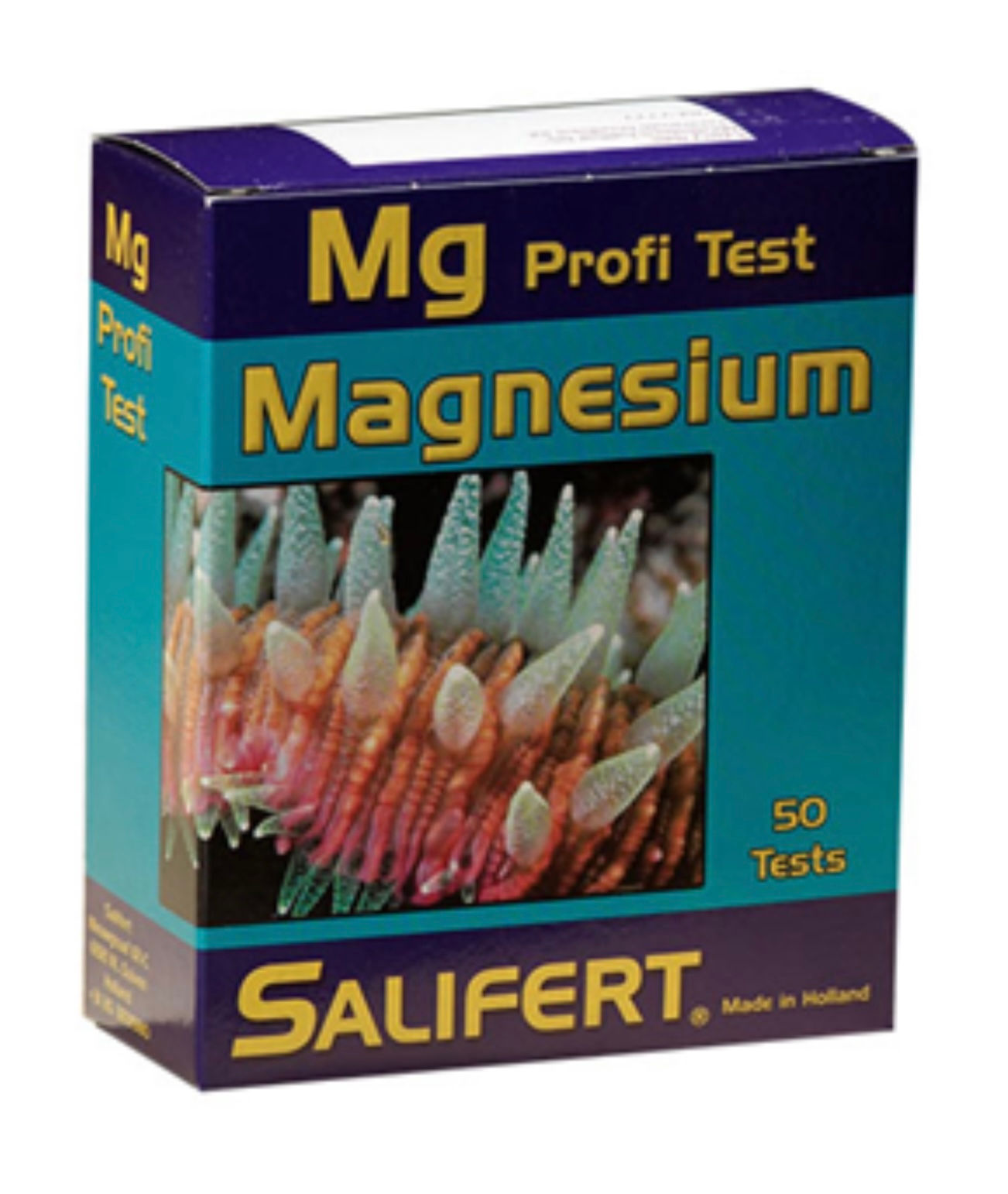Salifert Magnesium Test Kit
Description:
Suitable for Marine waters
Magnesium is present in NSW in a fairly high concentration (1300 - 1400 mg/L). Magnesium is an essential part of chlorophyll, which is necessary for photosynthesis. Without photosynthesis plants, including algae and the corals, which we usually have in our aquariums, would not be able to live.Magnesium has another important function since in fact makes maintaining the correct combination of calcium concentration and alkalinity or carbonate hardness possible.The explanation is as follows. Calcium forms with carbonates and bicarbonates an insoluble compound called calcium carbonate. Yes this is indeed an important building stone for corals and calcareous algae but then it should be formed by biological processes and be deposited at the right place. Therefore formation of calcium carbonate by chemical processes should be avoided.
Even without biological interference calcium carbonate would be formed and would deplete calcium and alkalinity or carbonate hardness without fulfilling any function. In fact it will scavenge many important trace elements as well lowering the trace element concentration.Magnesium slows down this negative process. The lower the magnesium concentration the faster this negative process will take place and also at a much lower calcium and alkalinity/carbonate hardness value.Maintaining a correct magnesium concentration is therefore very important and is indirectly responsible for fast coral and calcareous algae growth by virtue of making the maintenance of correct calcium and alkalinity figures possible.Magnesium is depleted by algae and is also depleted by the use of excessive kalkwasser and by going far beyond natural calcium and alkalinity and pH values.
There are also certain brands of salt, which have or had a dramatically low magnesium content. Use of such a salt will result in permanent problems with calcium and carbonate hardness values.


